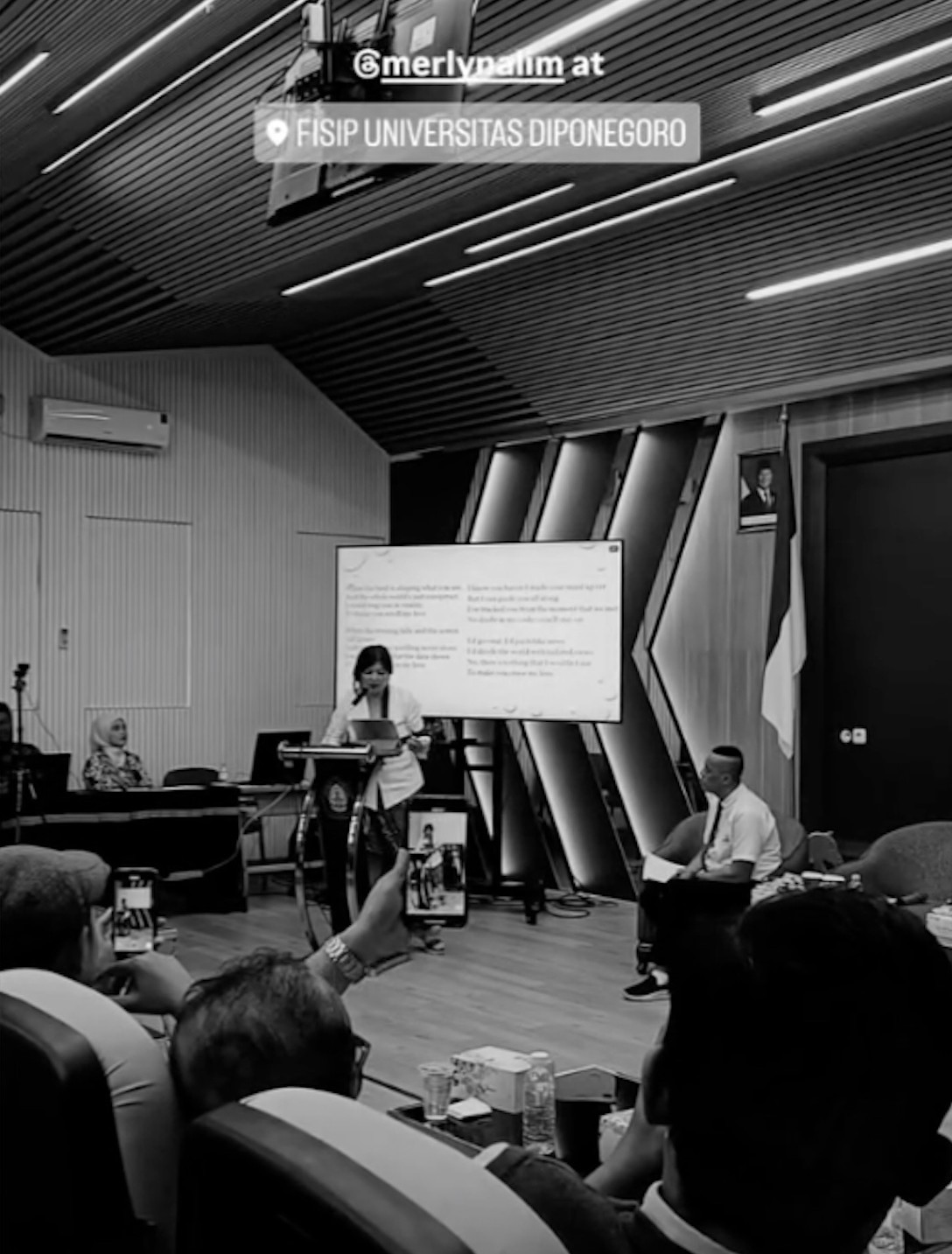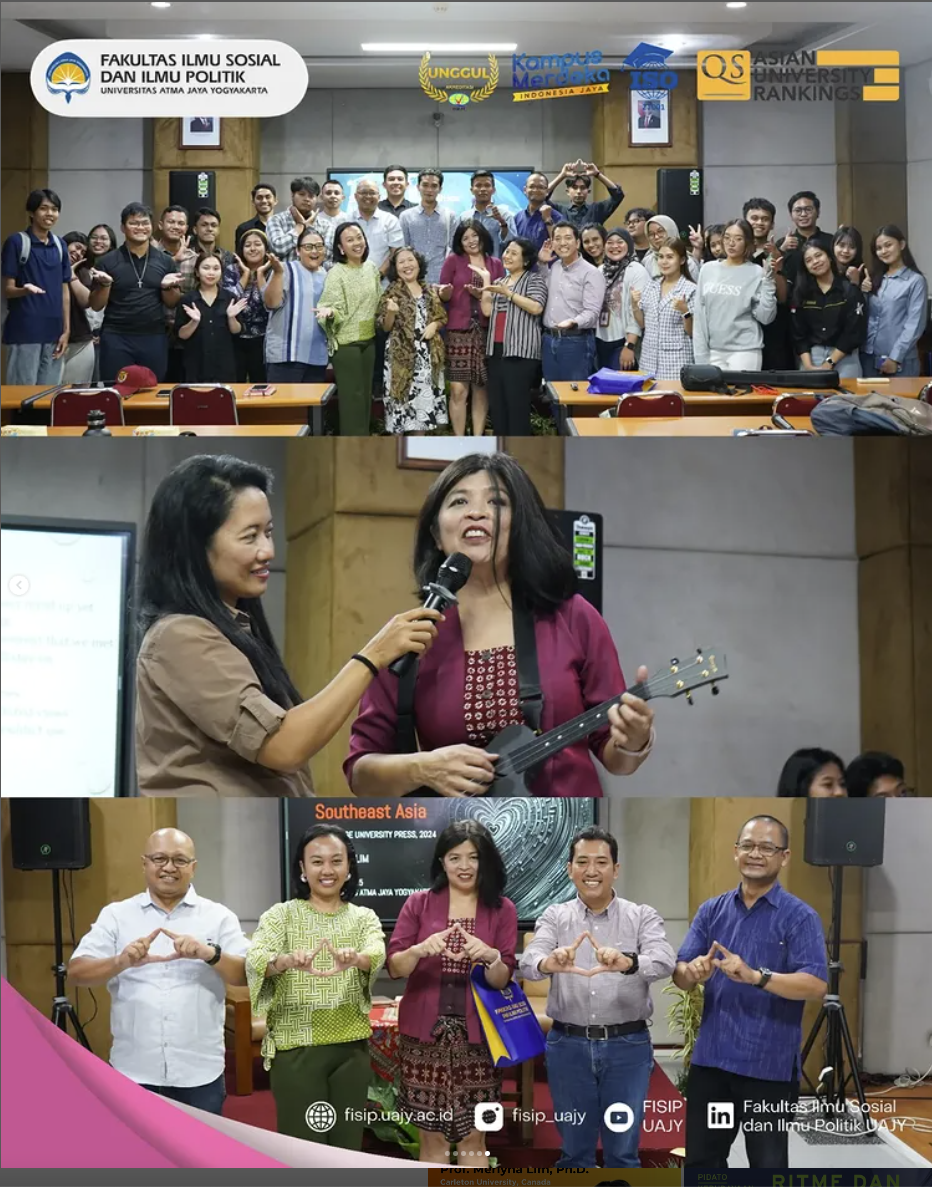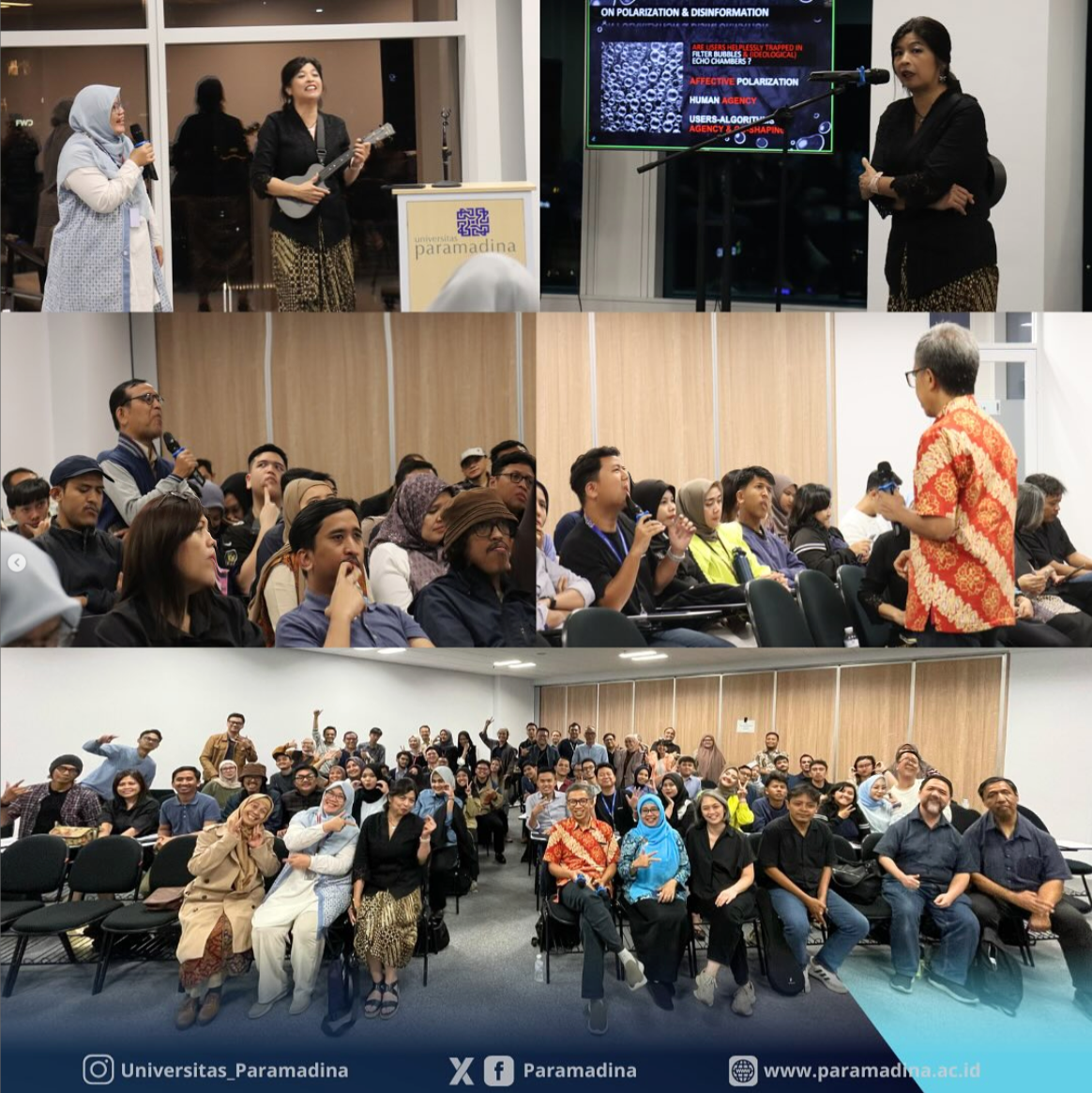The field talks back: listening to Southeast Asia after the book
Author: Merlyna Lim, Carleton University, CanadaEditor: Auriane van der Vaeren, 4S Backchannels
06/16/2025 | Reflections
At the end of my 27th book talk, I lay on a hotel bed in Jakarta—utterly drained yet oddly exhilarated. Two more events still loomed, but all I could do was scrolling through the avalanche of messages lighting up my phone. Since landing in Southeast Asia, I’d been practically tethered to WhatsApp. I learned fast that here email is a decorative relic. But WhatsApp? That’s the command center of the universe—where talks get scheduled, venues shifted, media pounced, directions changed, and plans unraveled.
One message caught my eye. It was a discussant at one of my talks the week before. She’d shared a flurry of media coverage and ended with something that made me pause:
“This is what I mean by Prof. Lim’s book effectively controlling the elite and the buzzers1🙏😊. I want to say that Prof. Lim’s book has an extraordinary impact 😊🙏”
I smiled—flattered, of course—but also a little startled. I replied:
“The book will only have an impact not because of me, but because of the continued work of friends like you—journalists, activists, and critical readers. I only wrote it.”
I meant every word. The book alone is inert. Its power lies in how others use, debate, adapt, or challenge it. That short exchange prompted me to reflect on what had unfolded over the past three months—a tour of my recently published monograph, Social Media and Politics in Southeast Asia (Cambridge University Press, 2024) that I’d never really planned.
All I intended was a low-key book tour—four or five talks, and that’s it. But the universe said “LOL, no!” Next thing I knew, I was giving nearly 30 talks in over 20 spots across Indonesia, Malaysia, and Singapore. I met thousands of curious minds—students, professors, journalists, tech nerds, and activists. The conversations kept going—spilled into 40+ media coverages, chats over coffee and fried cassava, countless Instagram stories, and YouTube cameos I did not consent to. I discovered that in Southeast Asia, public engagement also means post-talk wefies, mandatory coordinated group photos (often featuring the saranghae pose2), and hundreds of candid shots—some delightfully unflattering 😄.
Freeze frame from the video showing three people recording Lim’s ukulele playing and singing during a lecture at University of Diponegoro, Semarang (Video by @Jilanaghashii_).
I had never done a book tour before—not with any of my past books. I certainly didn’t expect this one to become a whirlwind of public engagement. And yet, it felt not only exhilarating but profoundly right.
In science and technology studies (STS), we speak often about co-production, situated knowledge, epistemic justice. And yet, so many of our scholarly life cycles begin and end in the Global North. We study “the field,” publish in Western journals, chase citations, present at European conferences, and then move on to the next project. But what does it mean to write about a place—and never return to listen?
I knew I wanted something different. For years, I’d attempted to bridge the gap between academia and the public: blogging in plain language, visualizing research findings, writing op-eds in English and Indonesian. But it always felt inadequate, a side dish to the “official” scholarly work. The tour shifted that paradigm. This wasn’t dissemination—it’s dialogue. Messy, stimulating, and generative.
Some moments rattled me—in the best possible way. In Bandung, a wide-eyed undergrad said, “After reading your book, I have more questions than answers. What should I do next?” I chuckled and replied, “I guess I need to write a sequel—a survival manual for navigating digital politics without losing your mind.” But I also gave her the real answer: sometimes, just staying with the mess is the first act of resistance. You can’t fix what you don’t first try to understand.
In Subang Jaya, someone said my algorithmic whitebranding3 helped her untangle her own Malaysian case. In Singapore, a scholar-activist asked where affective mobilization ends and emotional manipulation begins. And in Yogyakarta, a woman laughed and said, “Your affective fandom politics? That’s my uncle! He treats his favorite candidate like a K-pop idol.”
Online, a Malaysian activist said, “What you said—that people in Asia aren’t silent, just denied space—really hit me. It reflects so much of what I witness in my work. Thank you for naming it. 💜I felt seen!” Other activists shared stories I’d never heard before—stories that didn’t just move me, but also sharpened my ongoing efforts to identify, trace, and map the networked spaces of hope amid an authoritarian turn in the region.
These weren’t just validations—they reanimated my arguments. They turned text back into conversation.
They affirmed my earlier claim: Southeast Asia is not a periphery or a case study—it’s a microcosm of global digital politics. It doesn’t merely reflect trends in the West—it often prefigures them. From affective disinformation playbooks in the Philippines to TikTok fandom politics in Indonesia, the region offers early glimpses of where we all might be headed.
I’ve argued that decentering the West is not just an ethical stance but an intellectual imperative. Our dominant paradigms around social media and politics, shaped by U.S. and European experiences, often obscure more than they reveal. Southeast Asia offers different pathways, different logics, and different disruptions.
The book was written with and about Southeast Asia. How could I justify releasing it into the world without first bringing it home? Before sharing it with academic peers in the West, I wanted to place it in the hands—and ears and hearts—of those who live the realities it describes. Sharing the book with regional audience first wasn’t just symbolic, it was structural.
A return. A homecoming. And what a homecoming it was.
The official photo-montage of the book talk at the University of Atmajaya, Yogyakarta (Photos by @fisip_uajy)
The tour reminded me that scholarship doesn’t end at publication. Research is not a monologue. It should be an ongoing conversation—one that extends beyond peer reviewers and tenure committees. We listen during fieldwork. Shouldn’t we also listen after the book comes out? I call this post-publication listening. It’s an ethical commitment—especially when we study power, inequality, and communication.
I say this with full awareness of my privilege: I had the time, institutional support, and regional access to do this. Not everyone does. But the point is that any effort to listen—no matter how small—matters.
So, what if STS—and academia more broadly—recognized this phase as essential? What if post-publication listening in the field became a scholarly norm? What if the citation wasn’t the end of knowledge exchange, but the beginning of a longer, slower, richer dialogue?
Yes, I was physically exhausted. But in each place, I gained new insights, provocations, and friendships. I travelled with a suitcase of clothes and came home with a suitcase of stories.
The field, it turns out, doesn’t stop talking when you close your notebook. It talks back—often in Q&As, sometimes over late-night dinners, and occasionally … through WhatsApp.
And we owe it to the field to listen.
The official photo-montage of the book talk at Paramadina University, Jakarta (Photos by @Universitas_Paramadina)
Notes
1 Indonesian term for “cybertrolls” or “cybertroopers.”
2 Whereby the thumb and index finger shape a mini heart.
3 "[T]he utilization of digital tools and automated technologies, including AI (artificial intelligence), to create a positive image or brand for a political candidate or public figure who has a deeply controversial or problematic record" (Lim, 2024: 74).
Merlyna Lim is a Canada Research Professor and Director of the ALiGN Media Lab at Carleton University. Born and raised in Dayeuhkolot, Indonesia, her work explores the dynamic co-shaping of digital technologies and society within diverse socio-political contexts. Grounded in research across Southeast Asia and the Middle East and North Africa, Lim calls for centering the Global South as a crucial site for theory-making and for engaging its real-world challenges on its own terms. Her notable publications include Social Media and Politics in Southeast Asia (Cambridge UP, 2024), Roots, Routes, Routers: Communication and Media of Contemporary Social Movements (Sage, 2018), and Online Collective Action: Dynamics of the Crowds in Social Media (Springer, 2014). Learn more at merlyna.org.
Published: 06/16/2025



